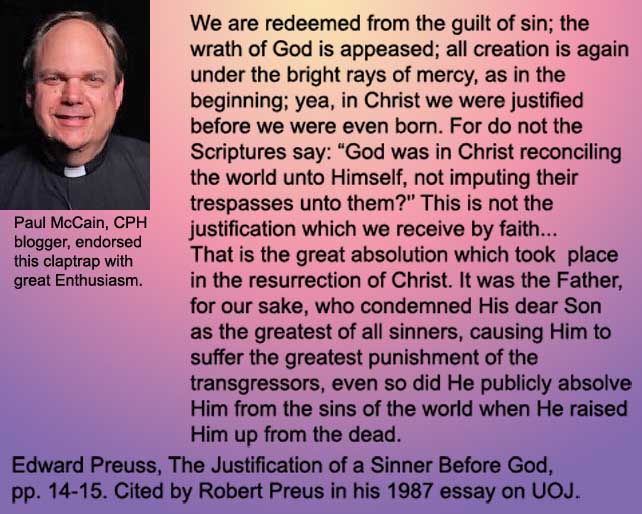***
GJ -
Lampe is a self-appointed minister to any denomination that will hire him. He was listed as a Church and Change board member, with Ski and other n'er-do-wells. But we all know, wink wink, that Church and Change is no more.
Apparently literacy is not a requirement for Church and Change leadership. If someone can copy and paste, he is on the board.
----
"Brian Arthur Lampe delivers a one-two punch to the devil and his schemes with his high powered, enthusiastic, energetic life-applying Biblical motivational speaking. We are on a quest for authentic God. By including Brian Arthur Lampe, you will have more than just a rally or a Bible study. You and your congregation will be providing men, women, and youth with an encouraging process that teaches them how to live lives of authentic Christianity as modeled by Jesus Christ and directed by the Word of God." Christian Speaker Network describes Brian's denomination as Christian.
I am trying to figure out C.E.O. Ministries. Here is a promo from WELS' Church and Change (the outfit "shut down" by WELS):
Parent's Ministry - CEO
Brian and Tracy Lampe
Your baby is now a teenager, going through all of the teenage rites of passage. Between school, friends, God, and a social life, their lives seem to be a foreign country to you. The little boy or girl that once told you everything now has to be hounded to give you even a snippet of thought. Yet there are three things you should know about what is going on in your Christian teen's head that will make your relationship a little better…
Click the link to find out!
CEO also has programs for:
Men's Ministry
Students Ministry
Couples Ministry
Corporate Ministry
Email: Brian@CEO-Ministries.com
Website: www.ceo-ministries.com/parents.html
They are endorsed by WELS. Their March activity is linked from the WELS.net website.
It's also listed on Section Q, which is from CLR (formerly WELS Lutherans for Life).
John J. Wonders does their website. He describes himself as a "Clydesdale in training."
There is a link to Victory of the Lamb Lutheran Church, where women are invited to attend the Bible Babes group.
At St. Paul's Lutheran Church, Muskego:
Check Us Out;
Whether you are a committed Christian or investigating Christianity we invite you to check us out this Sunday at our student center. Doors open at 9:00am. Food and beverages are served between 9:30-10:30a.m. and Brian Arthur Lampe turns it up a notch or two for Jesus!
St. Paul's does a lot with Prayer Warriors, which is a Reformed mania. The Church and Change, Church Growth people like to emphasize prayer in a typical heretical way.
Here is a profile for Brian Arthur Lampe:
Driver
UPS
(Religious Institutions industry)
September 2006 — Present (1 year 6 months)
Owner
CEO Ministries
(Religious Institutions industry)
September 2006 — Present (1 year 6 months)
Brian Arthur Lampe’s Education
Wisconsin Lutheran
1984 — 1987
I am trying to figure out C.E.O. Ministries. Here is a promo from WELS' Church and Change (the outfit "shut down" by WELS):
Parent's Ministry - CEO
Brian and Tracy Lampe
Your baby is now a teenager, going through all of the teenage rites of passage. Between school, friends, God, and a social life, their lives seem to be a foreign country to you. The little boy or girl that once told you everything now has to be hounded to give you even a snippet of thought. Yet there are three things you should know about what is going on in your Christian teen's head that will make your relationship a little better…
Click the link to find out!
CEO also has programs for:
Men's Ministry
Students Ministry
Couples Ministry
Corporate Ministry
Email: Brian@CEO-Ministries.com
Website: www.ceo-ministries.com/parents.html
They are endorsed by WELS. Their March activity is linked from the WELS.net website.
It's also listed on Section Q, which is from CLR (formerly WELS Lutherans for Life).
John J. Wonders does their website. He describes himself as a "Clydesdale in training."
There is a link to Victory of the Lamb Lutheran Church, where women are invited to attend the Bible Babes group.
At St. Paul's Lutheran Church, Muskego:
Check Us Out;
Whether you are a committed Christian or investigating Christianity we invite you to check us out this Sunday at our student center. Doors open at 9:00am. Food and beverages are served between 9:30-10:30a.m. and Brian Arthur Lampe turns it up a notch or two for Jesus!
St. Paul's does a lot with Prayer Warriors, which is a Reformed mania. The Church and Change, Church Growth people like to emphasize prayer in a typical heretical way.
Here is a profile for Brian Arthur Lampe:
Driver
UPS
(Religious Institutions industry)
September 2006 — Present (1 year 6 months)
Owner
CEO Ministries
(Religious Institutions industry)
September 2006 — Present (1 year 6 months)
Brian Arthur Lampe’s Education
Wisconsin Lutheran
1984 — 1987
---
Update on LinkedIn
Summary
We’re simply a group of knuckleheads for Christ, encouraging one another through each other's faith. United in through Christ lay-men, and women from sister WELS families who love our called workers, but fully understand that each of us is called by God, and empowered to fulfill His purpose. [ What?[
Youth, and adult ministry, event and conference planning, and motivational speaking.
To build Christ Empowered Opportunities into an established tool for people to be encouraged to tap into their spiritual gifts.
Getting them involved in spreading the Gospel message through their profession without even saying a word.
Specialties:Motivational speaking, youth and men's ministries.
Youth, and adult ministry, event and conference planning, and motivational speaking.
To build Christ Empowered Opportunities into an established tool for people to be encouraged to tap into their spiritual gifts.
Getting them involved in spreading the Gospel message through their profession without even saying a word.
Specialties:Motivational speaking, youth and men's ministries.
Experience
Truck driver
WELS
OTR Driver
Quad graphics
I was an OTR truck driver and delivered plant to plant materials

















